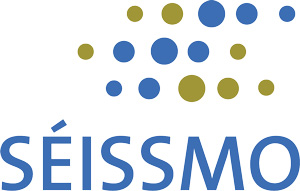Screen-to-Screen
interviews, purchase simulation

The principle: Putting consumers in a ‘real’ shopping situation to approximate the real shopping experience
The interviews focus on the most recent purchase of a specific product category. We record the drivers, occasions, shopping mission and shopping mood in a concrete shopping simulation, i.e. in a simulated, digital competitive situation. Which products are perceived, how is the purchase decision made? As we show different 'shelves' via screen sharing, different concepts or design routes can be tested.
The interview gives participants no (or at least not too much) time to think about their decision and over-rationalise.
The procedure is as follows:
- Consumers describe their last purchase as a clear reference point: the mental context, the shopping situation, what the consumer paid attention to when making the purchase decision, etc.
- The consumer should mentally transport himself back to the same shopping situation on the same day (with the same 'purchase request'), in the same shop. They are therefore mentally in front of the shelf, with a specific shopping mission and in a specific shopping mood. We will then use the screen sharing function to show the test material.
- A first simulated competitive situation (with predetermined rotation and prices) is shown. The consumer should make a purchase (if there is a product that meets the requirements!) and explain how he came to the purchase decision. Then the next competitive situation is shown.
Increased validity of results through realistic contextualisation in the competitive environment without framing
We are careful not to expose our respondents to the object of interest. Instead, we build a stimulus material that mimics shelf and in-store life, where we introduce new concepts. Based on behaviour rather than attitude, the setup confronts consumers with a decision-making process in which they reveal what matters (and what matters less or not at all).
All we need are 2D images in digital form. This also eliminates the need for costly handmade prototypes.
How we integrate observation into the packaging research process
We recently investigated the importance and role of packaging in the purchase process of electrical appliances. To find out what consumers look for in product packaging and at what point in the purchase process packaging is relevant, trained interviewers recorded shoppers' observable, uninfluenced behaviour at the POS. This provided insight into needs and decision-making behaviour at the POS:
- How long do shoppers spend at the POS before making a decision?
- How do they navigate around the POS? What routes do they take?
- What behaviour can be observed?
- Which products & packs do they touch/ take off the shelf? How do they interact with the packs at the POS?
The observations allowed us to capture unconscious behaviour that participants would not recall in an interview. For example, we observed that shoppers thoroughly investigate product properties, e.g. knocking on the cases, running their fingers over the materials to touch/feel the device, or disassembling parts.
Read more on Product & Packaging Test
Observation of consumer behaviour & routines
Mental representation, intuitive clustering
The other 3 pillars of our research expertise
Exploratory Research
WE DIG TO THE BOTTOM of consumers' minds
- Consumer attitudes, behaviour, drivers and barriers
- Usage patterns and habits, customer journeys
- Lifestyle research
- Market landscape, mental maps
- Latent needs, new territories
- Consumer segmentation, typology, persona
Shopper Research
- Shopping experience (online and offline)
- Optimal layout, co-creation with Do-It-YourShelf
- Shopping mood, shopping mission
- Loyalty drivers
Brand & Strategy Research
WE STRETCH BRANDS WITHOUT LOSING ELASTICITY
- Brand audit, brand claim, brand image, reputation monitoring
- Brand equity, brand core and identity
- Brand purpose, CSR
- Brand experience (BX)
- Advertising & communication impact
- Product relaunch (360° marketing check)
- Marketing mix coherence, portfolio
alignment - SWOT analysis

